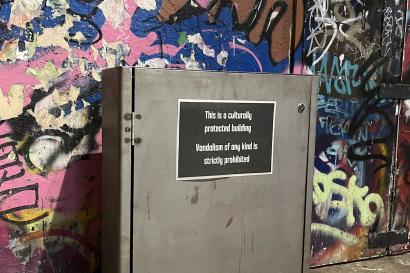
Good news everyone! It’s time for another blogpost! On today’s post I’ll be talking about various aspects of Germany that I either like or dislike (I would say love or hate, but I think that’s too emotional for the contents of this post). Enjoy!
Like:
Public Transit – In Berlin, I have a ticket that works for busses, trams, the u-bahn and the s-bahn. That’s four ways of getting around the city at essentially any time of day. Moreover, the public transportation is clean. People know they use it on a regular basis and make sure to not trash it and the train stations aren’t terrifying caves like in D.C. either, instead lots of them are actually really cool architecturally, the most notable being the Hauptbahnhof.
Dislike:
People on public transit – For some reason, Germans don’t like moving away from the doors of the trains when they get in. In some cases, I understand it, like if they’re getting off a stop or two after they get on. More often though, people will be crammed tighter than cattle on their way to slaughter and there will be seats open in the area between two doors and tons of standing room. Check out the pictures to see a good example of this.
Like:
Cheap food – Almost every morning I will get a couple of Bretzeln and a big thing of fruit for the day, as well as a salad for lunch at a local supermarket. This generally costs me around 4 euro and serves as my breakfast, lunch, and snacks throughout the day. Additionally, Döner kebabs are anywhere from 2 to 4.50 euro and are easily a full meal. Expect a post about the glory of döner in a week or so!
Dislike:
Graffiti – For some reason, graffiti in Europe is significantly more popular than in the US. Thankfully, they seem to avoid historic buildings. While oftentimes the graffiti is actually quite beautiful, it’s still dismaying seeing random spray painted names on most buildings.
Like:
The prices of items – This goes kind of back to cheap food, but it’s definitely worth talking about separately. German prices include tax, so what you see is what you get. There’s one notable exception to this rule, and it’s what Germans call Pfand. When you buy a glass of beer at a festival, it will generally be 2 euro or so more expensive than advertised. However, when you bring back the glass, they’ll give you those 2 euro back. This promotes using good glasses at these festivals, so not everything is served on crappy paper plates and they don’t have to use wasteful aluminum cans for everything. Pfand also applies to bottles in stores, however there it is included in their price. What happens is the Pfand is about 10 cents or so extra on every bottle. When you bring the bottles in to the store, you can deposit them and get basically a gift card with x euros back. An interesting side effect is that if you don’t feel like bringing your bottles back, you just set them on the side of a building somewhere and homeless people will come collect them and get money for food. Lots of homeless people will have a cart full of bottles that they collect all day to get their food for the evening.
Dislike:
Walk signs – In the US, when you are coming up to the crosswalk in most cities there will be a countdown for how long there is left before the sign changes (or the walk sign starts blinking). That way, you know if you need to hurry to cross the street. Germany does not use any devices like this, and as such you’ll just start crossing a wide street when it turns red and feel like you’re holding up traffic until you get across.
Like:
Metric system – Germans use the metric system. The metric system is far superior to the imperial system. Not much more I can say about this topic.
Dislike:
Phone numbers – There’s no standardization of German phone numbers. Some are 5 digits long, others are a dozen. For cell phones they don’t really have area code equivalents, instead the beginning numbers show who your carrier was when you first got the phone. This can be 3 or 4 digits long, and are generally of the form 014 or something similar starting with a 0 (which may or may not be optional?) For landlines, they do have area codes and their length depends on the size of the city (Heidelberg is 5 digits long, whereas Berlin is 2). All this means is there is no good way to write your number down and no normal chunks that you can identify. On top of this, a lot of the time you also have to use country codes (+49 is Germany’s country code, and yes, you should include the plus sign). This makes me really appreciate the simplicity of America’s phone numbers.
Like:
Tons to do in Berlin – Since I have gotten here, I’ve gone to two classical music concerts, one Russian ska band concert, hung out in tons of different parks, explored lots of different areas of Berlin, gone to a couple museums and memorials, gone to some bars (I’ve not gone clubbing yet), and gone to a couple different markets and a sustainability festival. The only nights that I’ve hung out at home were because I was really tired, not because I couldn’t find anything good to do.
That’s probably enough for this post! Overall, the goods outweigh the bads. I’m missing my friends, I ran out of Reese’s this week, and I miss American brownies, but overall I really am loving Berlin.

Robin Clower
<p>I am Robin Clower and currently I'm earning degrees in Secondary Education: Mathematics and German, as well as an additional major in Mathematics at Oklahoma State University (Go Cowboys!) I lived in Germany as a child, but am now headed back after studying Germany's language, culture, and history for four years at OSU. My main passion in life is teaching, so I hope to teach y'all something while I'm in Germany and learning about myself.</p>







